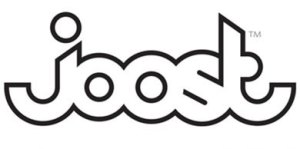
A couple years ago, Joost was the darling of a nascent online video industry, featuring peer-to-peer technology from Skye and Kazaa founders Niklas Zennstrom and Janus Friis couples with social networking features and the promise of full-screen Internet television. However, despite some high-profile partnerships, Joost never really took off—the company eventually abandoned its customer client software then dissolved into a maelstrom of catfigthing that recently saw shareholders oust CEO Mike Volpi. Now, “certain assets” of Joost have been acquired by audience measurement and content outfit Adconion…but the companies aren’t saying exactly what those assets are, or what kind of money
“Over the past few months we have been actively exploring strategic options for Joost, and have concluded that the sale of certain of its assets to Adconion is in the best interests of Joost,” said Joost co-founder Januus Friis, in a statement. “Adconion has a strong technological platform and a compelling business model, and we believe that both businesses will benefit as a result of this acquisition.”
Adconion seems most interested in leveraging Joost’s video distribution platform to put both video content and advertising through to its network of content affiliates and advertising partners. Adconion says it will continue to operate the existing Joost.com, although it will mainly serve as a “showcase” for clients to show their branded content.
After abandoning its client and eventually its Web-based efforts at Internet-based television, Joost re-aligned and began to market itself as a “white-label” video distribution platform that clients could leverage and rebrand for their own purposes; the Adconion acquisition seems to follow very much along that line of thought.
Adconion says it is currently serving more than 80 million video streams a day on a network of more than 2,000 Web sites around the world; it believes the Joost acquisition will enable it to scale its video solutions and expand its presence in the video advertising market.
Editors' Recommendations
- Microsoft finally kills this legacy Windows app — for good this time
- The war between PC and console is about to heat up again
- Alienware sale: Get up to $1,000 off gaming laptops and PCs
- HP is having a sale on 1440p monitors — up to 66% off
- HP Spring Sale: Up to 52% off bestselling laptops and free shipping


